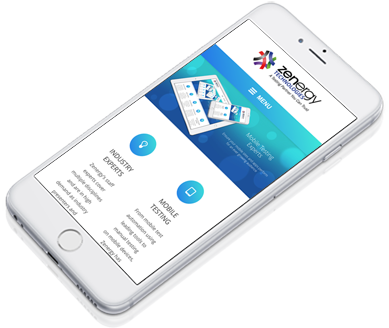
Mobile Testing Training Course
Details:
Virtual or on client site by request
Instructor: David Dang
Days of Training:
1 Day
Services Testing Workshop
Details
Join Zenergy for its upcoming services testing and automation workshop:
2019 Workshop Dates:
August 5-6
at The Nussbaum Center for Entrepreneurship
1451 South Elm Eugene St., Greensboro, NC 27406
Target Audience:
QA Testers (Basic knowledge of testing; theory and practice)
Services Testing and Automation Workshop:
2 Days
Summary
This one-day course focuses on the major aspects that QA managers, test analysts, and test automation engineers must consider before undertaking a mobile QA/testing project. A combination of lecture, classroom discussion, and experiential techniques provide attendees with a thorough understanding of the strategies and efforts necessary to test mobile websites and apps. This includes the challenges of mobile testing, the strategy necessary to support mobile testing projects, both automated and manual, and additional considerations all leads and managers need to know.
Mobile Testing Course Objectives
The primary objective of this class is to instruct QA/test managers, QA engineers, and automation engineers on the strategy needed to test mobile websites and apps. Attendees will learn:
- The impact of Agile vs. Waterfall development methodologies
- The challenges of testing mobile websites and mobile applications
- The significance between validating mobile content vs. mobile functionality
- The various testing approaches for mobile web applications and mobile applications
- The impact between testing on real devices vs. simulators
- The various levels of mobile testing
- The challenges of automating mobile testing
- What can be automated
- What cannot be automated
- Some of the common tools on the market for mobile automation
- Key factors to design optimal test automation frameworks
Course Outline
1) Challenges of testing mobile websites and mobile applications
Describes the challenges faced by the QA team when testing mobile websites and mobile applications. This includes different carriers, mobile device combinations, mobile OSs and OS versions, location based services, and network speed.
2) Impact of Agile vs. Waterfall development methodologies
Describes the impact of agile and waterfall development methodologies on mobile projects. The development methodology can dictate the timeline and coverage of testing for mobile project.
3) Testing approaches for mobile web applications and mobile applications
Explains the difference between mobile websites and mobile applications, and the testing approaches necessary to accommodate those differences.
4) Validating mobile content vs. mobile functionality
Covers the importance of testing both mobile content and mobile functionality. Mobile content include navigation, objects, business process flow, and data. Mobile functionality includes portrait/landscape, pinching, swiping, etc.
5) Testing on real devices vs. simulators
Discusses the Pros and Cons of testing on real devices and simulators. This includes some of the popular simulators available for manual testing.
6) Common tools on the market for mobile automation
Explains some of the most common automation tools in the marketplace. This includes both open source and licensed toolsets.
7) Design an optimal test automation framework
Describes key factors in designing an optimal test automation framework for mobile automation. This includes test data strategy, business process flow automation, and portability between devices.
8) Levels of mobile testing
Demonstrates the importance of various levels of mobile testing such as unit, functional, system, regression, and performance.
9) Challenges of automating mobile testing
Describes the challenges facing mobile test automation. This includes test automation tool maturity, support for mobile technologies, and trust of test automation tools for automation.
10) What can be automated
Outlines the key considerations on selecting tests to automate. Some of the considerations are mobile web and mobile app functionality, data intensive tests, comparable behavior across multiple devices, and static content.
11) What cannot be automated
Describes some of the factors against automating manual test cases. This includes test cases that verify dynamic content, user experience testing, and device specific functionality.
Zenergy’s staff experts in Agile, DevOps, and quality are in high demand as industry consultants, practitioners, and speakers at the largest software conferences in the world.
From mobile test automation using leading tools to manual testing on mobile devices, Zenergy has the experience to ensure mobile sites and apps perform as expected.
Test automation works best when implemented with a solid strategy. Zenergy has the experience to ensure your automation scales and performs like you want.
TESTING FACILITY
Zenergy not only houses leading QA and testing experts, it also employs large teams of automation engineers and test specialists in its onshore facility.
PUBLIC AND ONSITE TRAINING
From basic and advanced Selenium Automation courses to Test Methodology, Agile, and more, Zenergy can meet your training needs.